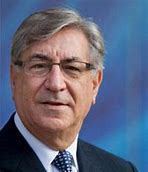Huge untapped potential in aquaculture

SUSTAINABLE aquaculture will have to ‘step up’ to close the food security gap, said the EU’s fisheries commissioner, Karmenu Vella, in a message to the World Aquaculture Society (WAS) conference in Montpellier last night.
‘These are exciting times for the aquaculture community. The world’s population is growing; we know we need high quality proteins to feed us all, but we also know that land based proteins exhaust precious resources,’ he said, in a video link during a press conference on day three of the joint WAS and European Aquaculture Society (EAS) event.
‘It is clear that we can use our oceans more. At present, the oceans provide only two per cent of our daily calorie intake – clearly, the oceans can provide more.
‘Our challenge is to do it sustainably. Wild fisheries alone cannot be the answer.’
The commissioner (pictured) said science had come to the same conclusion. Sustainable fish farming brings economic growth, jobs and stability to rural and coastal areas. It contributes to food security, and it provides consumers with fresh, local and heathy proteins while keeping our oceans healthy.
‘That is why the European Union is working to unblock the remaining obstacles to the sector’s sustainable development.
‘We are encouraging higher investments and less bureaucracy; we are endorsing a more efficient allocation of maritime space and we are promoting a positive shift in consumer attitudes.’
This work is paying off, said Vella, noting that in 2014 EU fish farming was valued at more than four billion euros.
But nearly two out of every three fish that is consumed in the EU is imported. The sector is not booming, although there has been some recent progress, with production volumes up four per cent and value up two per cent.
‘The keys to a successful and sustainable future are in our hands,’ Vella told the conference, which has attracted close to a record 3,000 delegates from across the world.
‘It is up to us ensure that the fish on our plates is high quality and sustainably farmed and to respect and preserve our oceans for now and for future generations.’
The FAO’s assistant director general of fisheries and aquaculture, Arni Mathiesen, said earlier that aquaculture now accounted for 53 per cent of all seafood consumption, and 20 per cent of global animal protein.
Some two thirds of this was freshwater production and there is great scope to produce even more, said Mathiesen, who set a target of 150 million tonnes by 2030.
There is great diversity in aquaculture production globally and big potential that is untapped, especially in Africa, he said.
‘Aquaculture will hopefully realise its potential and contribute even more than it does today.’
The Montpellier conference, at the Corum centre, opened on Saturday, August 25, and closes tomorrow, August 29. The trade show, also in the centre, ends this afternoon.

